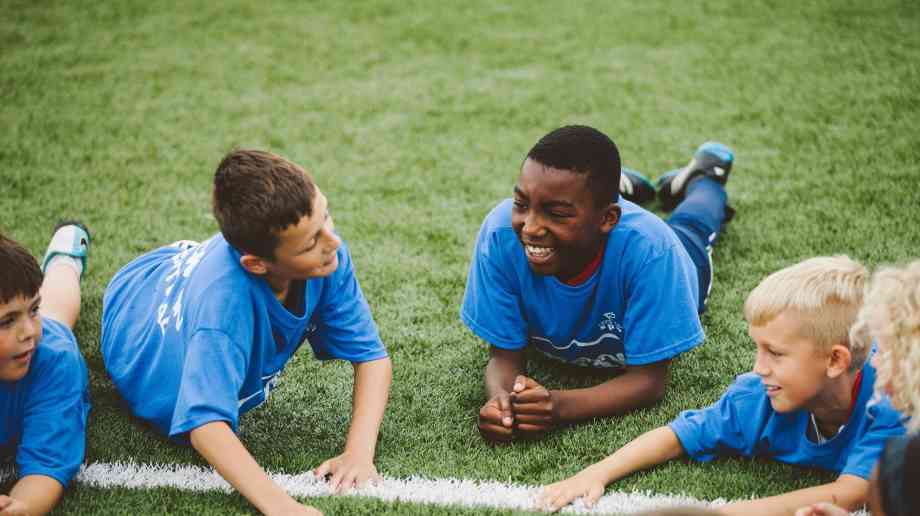
A plan for school sport and activity
Earlier this year, three government departments outlined a new plan for school sport and tackling inactivity. With a further update promised later this year, children’s charity the Youth Sport Trust gives guidance on what you need to know
After almost a year in development, the government’s School Sport and Activity Action Plan was published in July. The Department for Education (DfE), Department of Health and Social Care (DHSC) and Department for Digital, Culture, Media and Sport (DCMS) pledged to work together to make sport and exercise an integral part of pupils’ daily routine and increase the amount of time children spend being active, boosting their physical health, mental wellbeing, character and resilience.
It comes at a time when Sport England’s Active Lives research shows that more than 80 per cent of young people are not meeting the Chief Medical Officer’s recommended average of 60 active minutes every day.
Research by Youth Sport Trust (YST) has shown that most people are unaware of these guidelines and that in recent years curriculum time for PE has been reduced in many schools.
Government’s ambition
The government set out three overarching ambitions that it plans to deliver. Firstly, it wants all children and young people to take part in at least 60 minutes of physical activity every day.
Secondly, the government wants children and young people to have the opportunity to realise developmental, character-building experiences through sport, competition and active pursuits.
The third aim is for all sport and physical activity provision for children and young people to be designed around the principles of physical literacy, focused on fun and enjoyment, and aims to reach the least active.
These aims were reinforced by Prime Minister Boris Johnson over the summer. In a letter to YST and partners he said: “I am happy to reassure you that tackling any sort of decline in young people’s overall wellbeing will be a key pillar in my programme for government. It is our responsibility to provide an environment where children and young people can be actively engaged in sport and physical competitions so that children feel engaged in the sport they love. I can also clarify that any government I lead will seek to reduce childhood obesity and increase the amount of physical activities that our children are exposed to.”
What’s in the plan?
The outline plan sets out a range of new measures which aim to strengthen the role of sport within a young person’s daily routine, explain how teachers and parents can play their part and promote a joined-up approach to physical activity and mental wellbeing.
The plan references the £1billion government has invested in the Primary PE and Sport Premium but does not give any commitment to the future of this funding after this academic year. It is expected that this will follow after a government spending review.
The plan includes a £2m investment from Sport England to create 400 new after-school satellite clubs to get more young people in disadvantaged areas active.
It also includes a £2.5m from DfE in 2019-20 to deliver extra training for PE teachers, help schools open their facilities at weekends and holidays, and expand sports volunteering programmes.
The plan also includes a commitment to strengthen the School Games, and get schools and sports clubs to work together to share their facilities and expertise so that more pupils access character building competitive sport and volunteering opportunities. This will include a focus on ensuring boys and girls have an equal and coordinated offer of sport, competition and activity, including modern PE lessons and access to high-quality clubs and competitions after school and during weekends and holidays.
There is an acknowledgement that the new inspection framework, developed between Ofsted and DfE, will see schools expected to provide children with a broad, balanced education, including opportunities to get active during the school day and through extra-curricular activities.
There will also be a series of regional pilots running from September 2020 to trial innovative approaches to getting more young people active – particularly less active groups such as girls and those from disadvantaged backgrounds. This will be joint-funded by DCMS and DfE, through Sport England.
Drawing upon the success of This Girl Can, there will also be a new Netflix-style library of workout videos to be developed for use in schools and PE lessons.
Next steps
YST convened a joint response to the plan from across the sport sector, bringing together 40 leading sport charities and governing bodies. Like us, many of these organisations had supported government with the plan’s development. In a joint statement we welcomed its intentions and the joint work between three departments.
The YST added: “The success of the School Sport and Activity Action Plan will ultimately hinge on how it is resourced and delivered and to achieve significant change it will require improved support for school sport in the government’s next spending review.”
With the recent changeover in government, the Youth Sport Trust has been working to keep up the momentum on this agenda and ensure PE and school sport are on the radar of the new Prime Minister and his Cabinet.
In September, the charity worked with leading sports organisations to develop proposals for transforming this initial outline into a long-term, joined up plan of action which will deliver on its ambitions. It saw the charity invite ministers and civil servants to attend a summit in Twickenham. A further update from government has been promised for later this year.
To read the government’s full outline School Sport and Activity Action Plan, click here
Latest News
09/01/2026 - 10:13
The measure, added to the Children’s Wellbeing and Schools Bill, delivers on the commitment made in the government’s manifesto to bring multi academy trusts into the inspection system.
08/01/2026 - 10:30
The government is launching a new app allowing students to view their GCSE results on their phones for the first time from this summer.
08/01/2026 - 09:45
Education Business LIVE has announced that Professor Samantha Twiselton OBE of Sheffield Hallam University will speak at the event in March 2026, delivering two thought-provoking sessions focused on initial teacher training and SEND provision.
07/01/2026 - 10:10
Solve for Tomorrow is a free, curriculum-linked programme which is mapped to Gatsby Benchmarks 4, 5, and 6, helping teachers embed careers education without adding to workload.
06/01/2026 - 10:24
London's universal free school meals programme has not led to improvements in pupil attainment during its first year, but has eased financial pressure and reduced stress for families.







